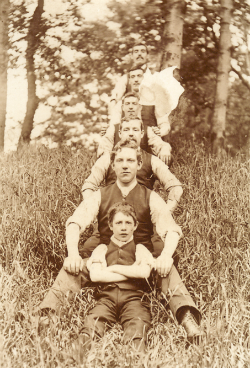Children and the First World War
What can churches do to mark the 100th anniversary of the outbreak of the First World War? David Hall of Wigan Baptist Church shared an idea from the January 2014 edition of Baptists Together Magazine; plus we have links to recommended resources
August 2014 marks the 100th anniversary since the outbreak of the First World War. Signs are that this will be the beginning of four years of commemorations and acts of remembrance. Reactions and responses will be many and varied, but whatever our view, there is no doubt that this will be one of the key narratives in our society in the years ahead.
As these events draw nearer, this raises some significant questions for churches. When stories are remembered and shared, issues of life and death, sorrow and suffering cannot be avoided. Church communities can offer themselves as natural places not only to engage with the narrative, but provide the words and context to work through the feelings and responses that emerge.
Whatever our convictions about the necessity of wars in times past, as a people called to be peace-makers, there is opportunity to promote this cause by acknowledging and highlighting the devastating cost of war. This does not need to be at the expense of recognising the courage, bravery and commitment of those who lay down their lives in the service of others.
If we are to play our part well, then as local churches we need to start the conversations now about how we might respond. It could be particularly useful to research the specific events that have connections with your local community, and also engage with other local churches in considering an appropriate response.
“Seasons of Remembrance” might offer the opportunity for churches to become places where local community members can gather to reflect, pray and be still – giving expression to their own sense of loss and bereavement, even though for many it will not be in direct consequence of war.
Wigan Baptist Church has already begun to respond to this challenge, and their minister David Hall shares something of the story . . . . .

“At the going down of the sun and in the morning, we will remember them". Words that we often hear once a year on Remembrance Sunday. Do we remember though and as the events of the First World War go beyond living memory how do we remember? As we approach the centenary of the start of WW1 how do we prepare and connect for future generations?
This question was brought into sharp focus on a recent educational visit to our church by a group of 10 and eleven year olds. One boy asked me what the war memorial was. I explained briefly about WW1, the horrors and how most churches have similar memorials. Whilst the children politely listened, were vaguely interested, it was obvious that this distant event meant little to them nor really grabbed their attention. What do we need to do to connect?
In the weeks to come, with the help of members and internet records, we delved into some of the names on the board. The E. Leather on the memorial became Edward Leather, a 35 year old gunner, killed in the 3rd battle of Passchendaele on 5th December 1917 and buried in Belgium. Edward was part of a large family having 4 brothers and five sisters all brought up on a local farm. He had a wife and a son back in Wigan. To make this more real a picture came to light of all the brothers taken at the turn of the century as well as pictures of the medals he gained.
On the next visit to church from the local school, this time with eight year olds, we highlighted the remembrance board asking the pupils what it was. As with the previous visit there was polite interest and general awareness.
This, however, changed completely when we were able to tell the story of Edward and see his picture. The children immediately connected and empathised with the event. Edward could have been their father, what would they have felt hearing the news of his death? What was it like for him in those trenches? What was the atmosphere in the church at Christmas 1917 when the news reached the community? Questions that came from the children enabling them to go back to school to research in an age appropriate way the emotional and spiritual consequences of war.
For older children a brief delve into the church records brings another story, with one of the baptist churches in the town having a minister with pacifist beliefs. The records then indicate the tensions and the discussions that this brought about within the church amongst families whose members were fighting in the conflict. Rich material for study and reflection.
Jesus taught about the kingdom of God through parables, essentially stories which conveyed deep meaning and to this day allow us to reflect, question and discuss. We can model this approach by developing meaningful stories that allow children to reflect, question and discuss the effect of war.
David Hall is the Lay Pastor, Wigan Baptist Church
For more information:
To trace names: Commonwealth War Graves Commission www.cwgc.org.
To gain educational material: British Legion http://www.britishlegion.org.uk
Other First World War resources:
Lots of WW1 material available from the HOPE website to help churches to mark the centenary of World War 1 at the heart of local communities. This includes the Greater Love DVD pack in conjunction with Christian Vision for Men, featuring video interviews, resources and material for groups to consider Christian faith
Lifewords has produced a new replica version of John's Gospel given to WW1 troops
https://www.lifewords.global/shop/product/wwi-active-service-saint-johns-gospel/
Baptist Times, 01/08/2014